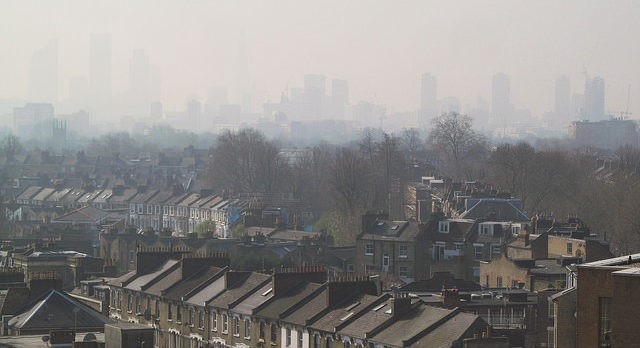Why is the government still standing by while Britain chokes?

Britain, under the Tories, is blighted by multiple crises but, as World Alzheimer’s Month begins today, it is the link between the social care and air quality crises that are worth urgent exploration.
Poor air quality in the UK is linked to 40,000 deaths every year. It’s a public health crisis that costs taxpayers almost £30bn every year.
The biggest source of the two main types of air pollutants in the UK is road transport, accounting for 31% of nitrogen oxides (NOx), 18% of PM10 and 19.5% of PM2.5 emissions – tiny particles. At urban monitoring sites, road traffic accounts for more than 64% of air pollution.
The headline figures illustrate the scale of an issue that has encouraged only apathy from the Conservative government. But hidden beneath the statistics is a possible link between air pollution and Alzheimer’s disease.
Alzheimer’s is a progressive brain disease that eventually strips sufferers of their ability to live independently. It currently affects almost a million people in the UK and is the most common type of dementia. More than 200,000 people will develop Alzheimer’s this year.
Dementia is the leading cause of death for women in England and the second biggest cause of death for men. There is no cure but delaying the onset of dementia by five years could halve the number of deaths from the condition and save 30,000 lives a year.
The latest research finds exposure to particulate pollution (PM2.5), produced by vehicle breaking and as a byproduct of combustion, can nearly double the risk of women over 65 developing Alzheimer’s. The University of Southern California research is the first of its kind to demonstrate that air pollution interacts with a so-called ‘Alzheimer’s risk’ gene – APOE4 – to accelerate brain ageing.
The study is not the first, however, to reveal a link between particulate air pollution, cognitive ageing and Alzheimer’s.
Researchers at the University of Toronto, earlier this year, reported that among the 6.6 million inhabitants of Ontario, those living within 50m of a major road were 12% more likely to develop dementia than those living more than 200m away – the difference in particulate pollution levels at these distances can be tenfold.
And it was almost a decade ago that a Mexican study first suggested a correlation between the neurodegeneration in dogs – and the presence of amyloid-β, a protein linked to Alzheimer’s – and the levels of air pollution in Mexico City. The neuroscientist leading the study, Lilian Calderón-Garcidueñas, also found a similar pattern of neurodegeneration in children and young adults.
However, Calderón-Garcidueñas’s study didn’t have rigorous controls or account for the fact that the presence of amyloid-β, although linked with the disease, doesn’t necessarily signal Alzheimer’s.
It is important, therefore, to be clear that no study has yet established how particulate matter pollution might enter the brain or exactly how it causes damage while there. But the studies do provide an emerging picture of particulate pollution as a plausible risk factor in the development of Alzheimer’s.
The EU precautionary principle mandates: action should be taken to mitigate plausible risks until they are proven not to be risks at all. By sticking to it, the UK Government could ease the parallel air quality and social care crises – for which they’re responsible.
At best, urgent and bold action on air pollution will help prevent thousands from developing Alzheimer’s and reduce the number of deaths linked to air pollution. At worst, it will just help prevent tens of thousands of unnecessary deaths and save the British taxpayer almost £30bn a year. It’s a win-win situation.
It begs the question then: why is the government still standing by while Britain chokes?
Keith Taylor is the Green MEP for South East England
To reach hundreds of thousands of new readers and to make the biggest impact we can in the next general election, we need to grow our donor base substantially.
That's why in 2024, we are seeking to generate 150 additional regular donors to support Left Foot Forward's work.
We still need another 124 people to donate to hit the target. You can help. Donate today.



